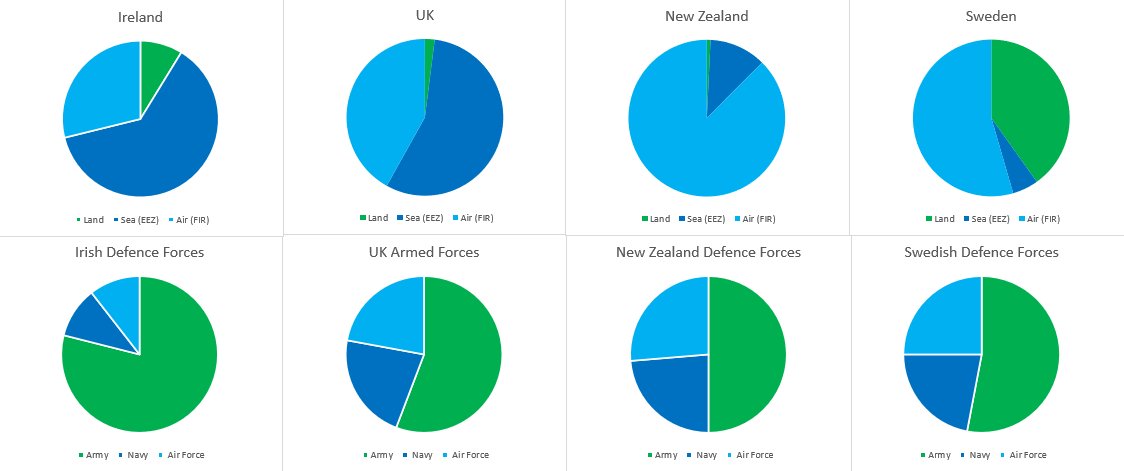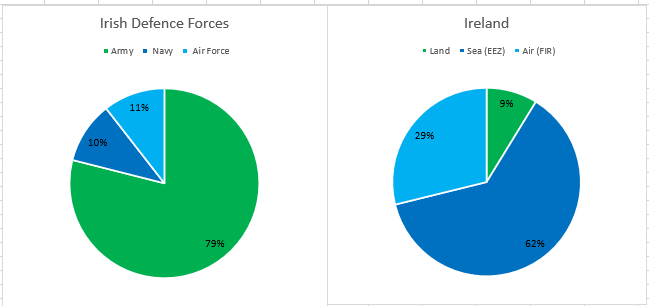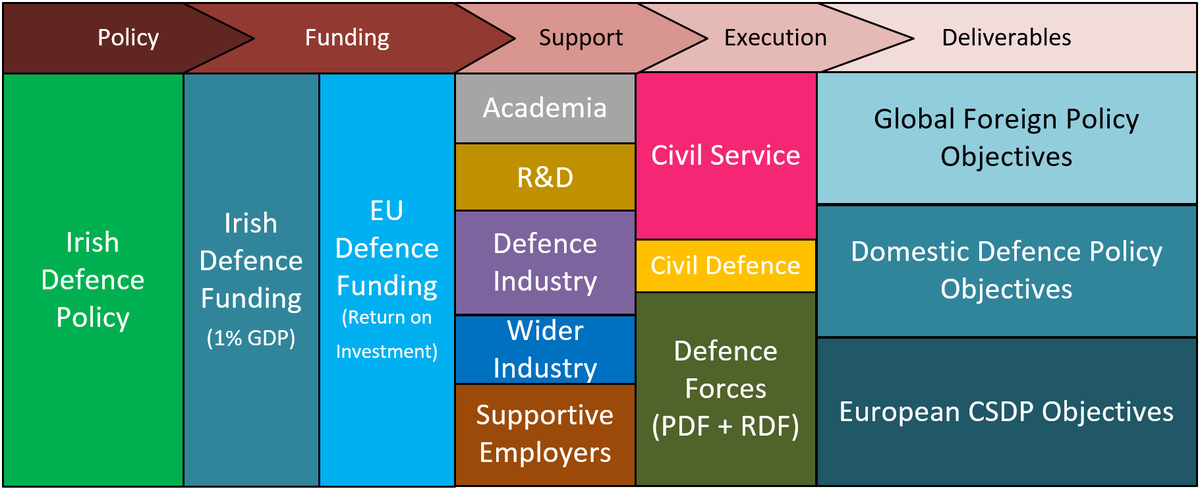
The last line is telling.
THREAD
The @IRLCoDF need to be seen to do something on #Cyber because @IRLDeptDefence offloaded general #CyberDefence responsibility onto @Dept_ECC & @ncsc_gov_ie.
But The National Cyber Security Strategy doesn't cater for defensive & offensive Ops.
THREAD
The @IRLCoDF need to be seen to do something on #Cyber because @IRLDeptDefence offloaded general #CyberDefence responsibility onto @Dept_ECC & @ncsc_gov_ie.
But The National Cyber Security Strategy doesn't cater for defensive & offensive Ops.
https://twitter.com/2Cisar/status/1369709753807568901
So how can the @IRLCoDF build that capability into the @defenceforces as part of it's recommendations?
SPOILER:
It can't all sit with the Communication and Information Services (CIS) Corps.
SPOILER:
It can't all sit with the Communication and Information Services (CIS) Corps.

1st, the @defenceforces needs an Intelligence Corps.
One that has career structures built to develop talent in the field of technical and military Int collection, collation, analysis & effective dissemination.
We need to be capable of making big data driven decisions fast.
One that has career structures built to develop talent in the field of technical and military Int collection, collation, analysis & effective dissemination.
We need to be capable of making big data driven decisions fast.
Recruitment & onboarding pipelines need to be tailored so that the DF can go to market for the talent that corporate Ireland is already competing for.
Which also means the Intelligence Corps needs to have a Reserve component so it can tap that high end talent at low holding cost
Which also means the Intelligence Corps needs to have a Reserve component so it can tap that high end talent at low holding cost
@defenceforces needs more than a cyber security incident response team (CSIRT), it needs ongoing cyber threat analysis integrated into the broader intelligence effort including Operational/ Open Source/Human/ Imagery/ Geospatial/ Signals Intelligence/ PsyOps/ Exploitation Ops etc 

Then beyond identifying cyber threats to its networks and systems, the @defenceforces needs the capability to respond with or initiate offensive cyber operations, perhaps even joint operations across branches, or even partner nations.
Which means more organisational changes...
Which means more organisational changes...

CIS needs to restructure its career pathway too. Currently the pipeline is geared towards creating telecom generalists after a lengthy onboarding period, rather than specialists in preset disciplines.
Meanwhile, @R_Signals are marketing for EW SIGINT operators & Cyber Engineers.
Meanwhile, @R_Signals are marketing for EW SIGINT operators & Cyber Engineers.

Again, this is where the @dfreserve has the advantage.
It can offer all the attractive aspects of military service, without compromising the earning capacity of civilian specialists.
But this requires @IRLDeptDefence to manage the relationship between the DF and employers.
It can offer all the attractive aspects of military service, without compromising the earning capacity of civilian specialists.
But this requires @IRLDeptDefence to manage the relationship between the DF and employers.
In conjunction with recruitment pipelines and technical development career frameworks, we need to talk about pay.
People working in the field of cyber security & infra are commanding serious remuneration packages, the DF needs to compete € for €, or make an alternative offer.
People working in the field of cyber security & infra are commanding serious remuneration packages, the DF needs to compete € for €, or make an alternative offer.
Travel, adventure, unique skills & housing is typically what most Western militaries offer.
The life less ordinary
Only, the @IRLDeptDefence don't offer housing. When joining the PDF, you're not guaranteed to end up in the trade you signed up for. Travel & adventure is mixed.
The life less ordinary
Only, the @IRLDeptDefence don't offer housing. When joining the PDF, you're not guaranteed to end up in the trade you signed up for. Travel & adventure is mixed.
Also add to the fact that cyber isn't as glamourous as the Danger Wing kicking doors in, & jumping out of helicopters.
What is the DF offering in terms of working environments? The Brugha? The Curragh?
Because the Big Tech companies are offering beanbags, Nerf guns and Segways.
What is the DF offering in terms of working environments? The Brugha? The Curragh?
Because the Big Tech companies are offering beanbags, Nerf guns and Segways.
So if the DF is only delivering on skills, and not offering only that which a military can in terms of travel, adventure, and housing, then it needs to compete on pay.
Otherwise, we can expect to see that newly acquired set of skills walk out the gate into a firm that will pay.
Otherwise, we can expect to see that newly acquired set of skills walk out the gate into a firm that will pay.
Beyond technical execution and threat analysis, both the @defenceforces & @IRLDeptDefence will need Cyber specific legal oversight. Especially if an offensive capability is being developed. @IRLCoDF will need to factor that into its structural recommendations.
The Transport Corps will need specialisation in cyber supply chain management.
Military Police will need cyber forensics built into their skills matrix.
Even line units will need to build in information management and cyber hygiene monitors right down to the section level.
Military Police will need cyber forensics built into their skills matrix.
Even line units will need to build in information management and cyber hygiene monitors right down to the section level.
After all, it only takes that one guy at the forming up point wearing a knock off "Garmin" watch that he bought from Ali Express to spoil months worth of operational planning, risk the lives of all his comrades and damage Ireland's reputation.
I know the @IRLCoDF have a lot to think about here, hopefully the Public Consultation will bear some fruit, and offer some solutions to the Irish Defence cyber problems.
That said, it can't hurt to have a further chat with @2Cisar on what's achievable, scalable, & sustainable.
That said, it can't hurt to have a further chat with @2Cisar on what's achievable, scalable, & sustainable.
• • •
Missing some Tweet in this thread? You can try to
force a refresh












